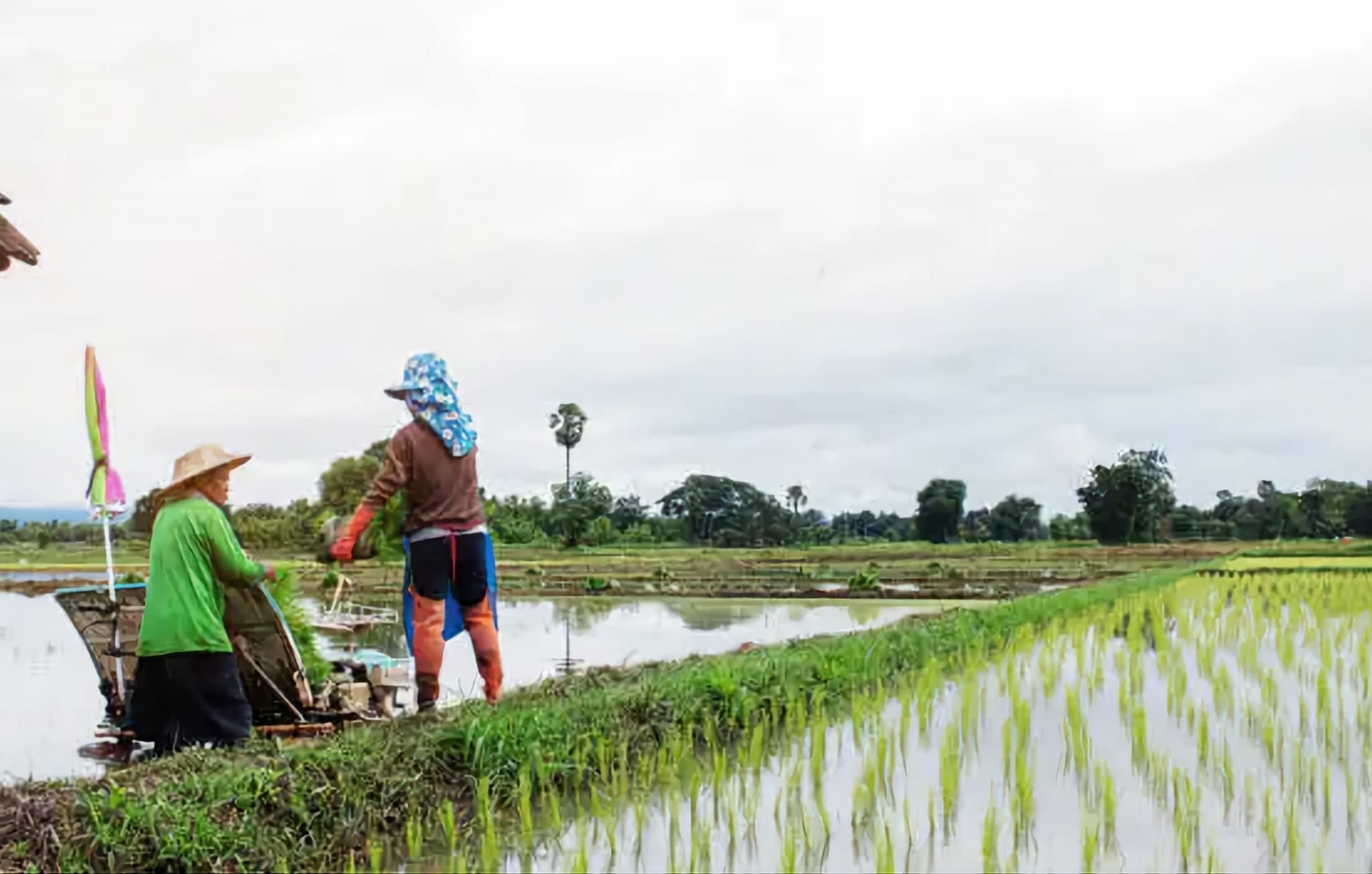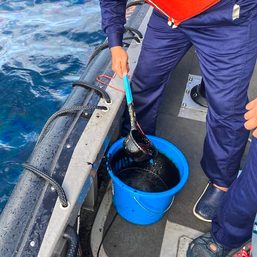SUMMARY
This is AI generated summarization, which may have errors. For context, always refer to the full article.

PALAWAN, Philippines – Facing rising costs of farm inputs and climate change threats like dwindling irrigation water, some rice farmers in Roxas town, Palawan, are opting to work as farm laborers for better pay.
Rudy Dangan and his wife Diana, small rice farmers in Barangay Minara, Roxas, used to cultivate less than two hectares of leased rice fields.
But the current demand for farm laborers in ricefields in Roxas town convinced Rudy and Diane to prioritize working in their neighbors’ rice fields, allowing them to earn a steady income. The couple, with two children, made this decision to ensure financial stability.
They said the soaring prices of fertilizer, pesticides, and labor expenses pushed them to stop their rice production. Instead, they now spend their days as farm laborers in nearby rice farms, where they receive more income.
From 7 am to 4 pm, Rudy and Diana harvest palay (unmilled rice), and from 4 pm to 6 pm, they use threshers to process the harvested rice.
At day’s end, the farm owner compensates them with two sacks of palay, which, when sold to local buyers at P600 per sack, earns them P1,200.
Their harvested rice field, less than two hectares, is irrigated. They also receive rice bran, locally known as darak, from the owner, selling it to buyers at P10 to P15 per kilo.
Rudy said their combined daily incomes of P1,200 to P1,500 surpasses the P400 daily wage he earned as a carpenter, while Diana tended their rice farm.
Managing even a small rice field, according to Diana, is financially taxing due to fertilizer and pesticide expenses. Unable to afford these inputs and maintenance costs, they decided to halt rice production temporarily and turn to labor work.
Previously, Rudy said he toiled in construction projects to buy farm inputs. However, their expenses exceeded their income from selling harvested palay, leaving them with minimal profit.
Now, as farm laborers, they find their earnings surpassing their previous income, providing them with much-needed financial relief.
“Minsan mas mataas pa ang ginastos kaysa sa kinita mo. Hindi na ganun kadali kung nagpapalayan ka,” she said.
(Sometimes your expenses are much higher than what you earn. It’s not easy to manage your rice field.)
Diana’s younger brother, Daryll Vicera, said he steps in as a farm laborer when there’s a shortage of workers although he is not always available because he also helps their mother in a nearby village.
“Kahit anong buwan, may nag-ha-harvest dito kasi irrigated yung palayan. Madalas kinukulang ng mga nag-tratrabaho kaya maganda na maka-extra rin,” he said.
(Regardless of the month, harvesting occurs year-round due to the irrigation of the rice fields. Often, there’s a shortage of farm laborers, which is why it’s good for me to work as a laborer here.)
Daryll, a solo parent with one child, said that if the demand for farm laborers in rice fields were seasonal, it would not be as attractive for people to work there.
The rice farmers said another thing that discourages them from maintaining their rice fields is the increasing effects of climate change and the looming threat of drought due to the El Nino phenomenon, which could devastate 17 provinces in the country this year.
Responding to the challenges, Amy Caabay-Revillas and her sister, Letty, said they have opted to diversify their income sources in Antonino, Roxas town.
They said they plan to raise livestock such as goats, ducks, pigs, and chickens alongside their respective rice fields. The strategy, they said, aims to supplement their income as rice farming becomes increasingly costly. – Rappler.com
Gerardo C. Reyes Jr is a community journalist at Palawan Daily News and is an Aries Rufo journalism fellow of Rappler for 2023-2024.
Add a comment
How does this make you feel?















There are no comments yet. Add your comment to start the conversation.